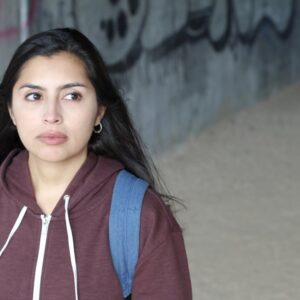“Divided we fall, and together we thrive” ~ Alan Tan, multiple sources, multiple dates.
In difficult times, it is hard to address pain. It is hard to address suffering. It is hard to bring people together. But it is necessary to build community.
We as a state, a country, a global community have been confronting COVID-19 for just about 2 years now. COVID-19 has provided us an opportunity to consider the issues that may have been not as visible before the pandemic. One of the largest issues that we have learned is the divisiveness in our communities, which like all other issues, is further exasperated by technology. When did our communities decide that everything complex needed to be reduced to 280 characters or less, or that everyone with access to a search engine knows more than professionals who need to earn the license in which they practice? These are complex questions that we, as a society, need to address together.
The Declaration of Independence of the United States, and by extension, the Constitution of the United States reminds us that our government is a government of the people, because we are a government formed by consent of the governed. As such, government and government agencies can guide us as a society to help solve our problems, but they cannot solve it for us. We need to adapt our government to modern times and build our communities back stronger than we inherited them.
We are confronted with the fact that there are many of us who are not doing well, and the pandemic has exposed it in a way which we cannot unsee. Many of these people who are not doing well, unfortunately, are from underserved and racially ethnic communities.
There is a solution to this, and we have implemented it here in Connecticut. Many people have said that Connecticut is behind the times, but I would argue otherwise. Connecticut is a leader. Some of our nation’s most storied inventors came from Connecticut. In 2019, the Commission was reformed into a format that focused on collaboration and inclusion. Voices that were not heard before, are now at the table. We thus have the ability to reach out to people who were traditionally left behind, and learn their stories. We can turn their stories into anonymized datapoints of issues for policymakers to consider. We can do it in a way that takes the toxicity out of politics.
Our legislators, and appointed and elected officials of Connecticut and its 169 municipalities, benefit from the work that we are able to do, together, with better data to make better decisions for the people of our great State. And I strongly believe that federally, we need a solution similar to Connecticut’s. I hear many stories about issues in our neighboring states of groups of people being left behind, and while Connecticut can lead, we cannot lead alone.
Together, we will beat COVID. We can make Connecticut a better place for all of us, our country a better place for all of us, and our world a better place for all of us, if we build community. Intersectionality in Public Policy is powerful, and needs to be at all levels of our government.
We work for the people – divided we fall, and together we thrive.
Alan C. Tan is the Co-Chairperson of CWCSEO, a nonpartisan state agency charged with advising the Connecticut General Assembly on public policy utilizing a data driven, cross-cultural approach. He is currently the President and CEO of TANRC, an emerging nonprofit standards organization focused on bringing the power of community to the startup ecosystem.






